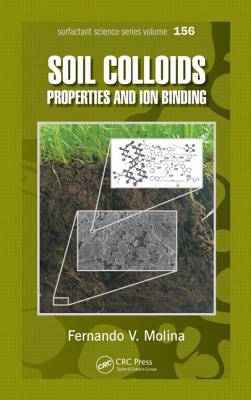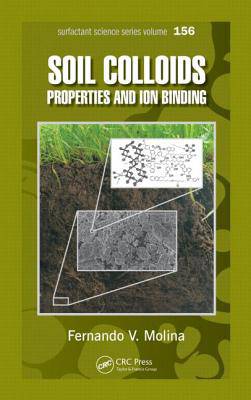
- Retrait gratuit dans votre magasin Club
- 7.000.000 titres dans notre catalogue
- Payer en toute sécurité
- Toujours un magasin près de chez vous
- Retrait gratuit dans votre magasin Club
- 7.000.0000 titres dans notre catalogue
- Payer en toute sécurité
- Toujours un magasin près de chez vous
Description
Within the field of soil science, soil chemistry encompasses the different chemical processes that take place, including mineral weathering, humification of organic plant residues, and ionic reactions involving natural and foreign metal ions that play significant roles in soil. Chemical reactions occur both in the soil solution and at the soil particle-solution interface--the latter surface reactions being vitally important in soil properties and behavior. The binding of ions to soil particles is important in defining the fate of foreign species, such as pollutants, and has a direct impact on nutrient availability.
Soil Colloids: Properties and Ion Binding examines soil colloidal components and their interactions with ionic species, integrating soil science and colloid chemistry and considering the latest advances in this active research area. Part I covers the fundamentals of colloid science for readers not familiar with these principles. It discusses all the important concepts, without excessive detail such as extensive mathematical derivations. Part II deals with soil and its components, especially clay and oxide minerals and humic substances. It covers their composition and characteristics, with an emphasis on colloidal properties and ion sorption on colloids. Part III provides in-depth coverage of ion binding to soil colloids, with a focus on modeling, including recent advances. Chapters in this section describe general concepts and the issues arising from the heterogeneous nature of most natural colloids, particularly organic ones. Reviewing the state of the art in dealing with the more complex interactions, the text covers ion binding to minerals and humics, presenting different theoretical approaches, as well as ion binding to multiple components, or whole natural soils.Spécifications
Parties prenantes
- Auteur(s) :
- Editeur:
Contenu
- Nombre de pages :
- 546
- Langue:
- Anglais
- Collection :
Caractéristiques
- EAN:
- 9781439851142
- Date de parution :
- 13-08-13
- Format:
- Livre relié
- Format numérique:
- Genaaid
- Dimensions :
- 157 mm x 231 mm
- Poids :
- 907 g

Les avis
Nous publions uniquement les avis qui respectent les conditions requises. Consultez nos conditions pour les avis.






